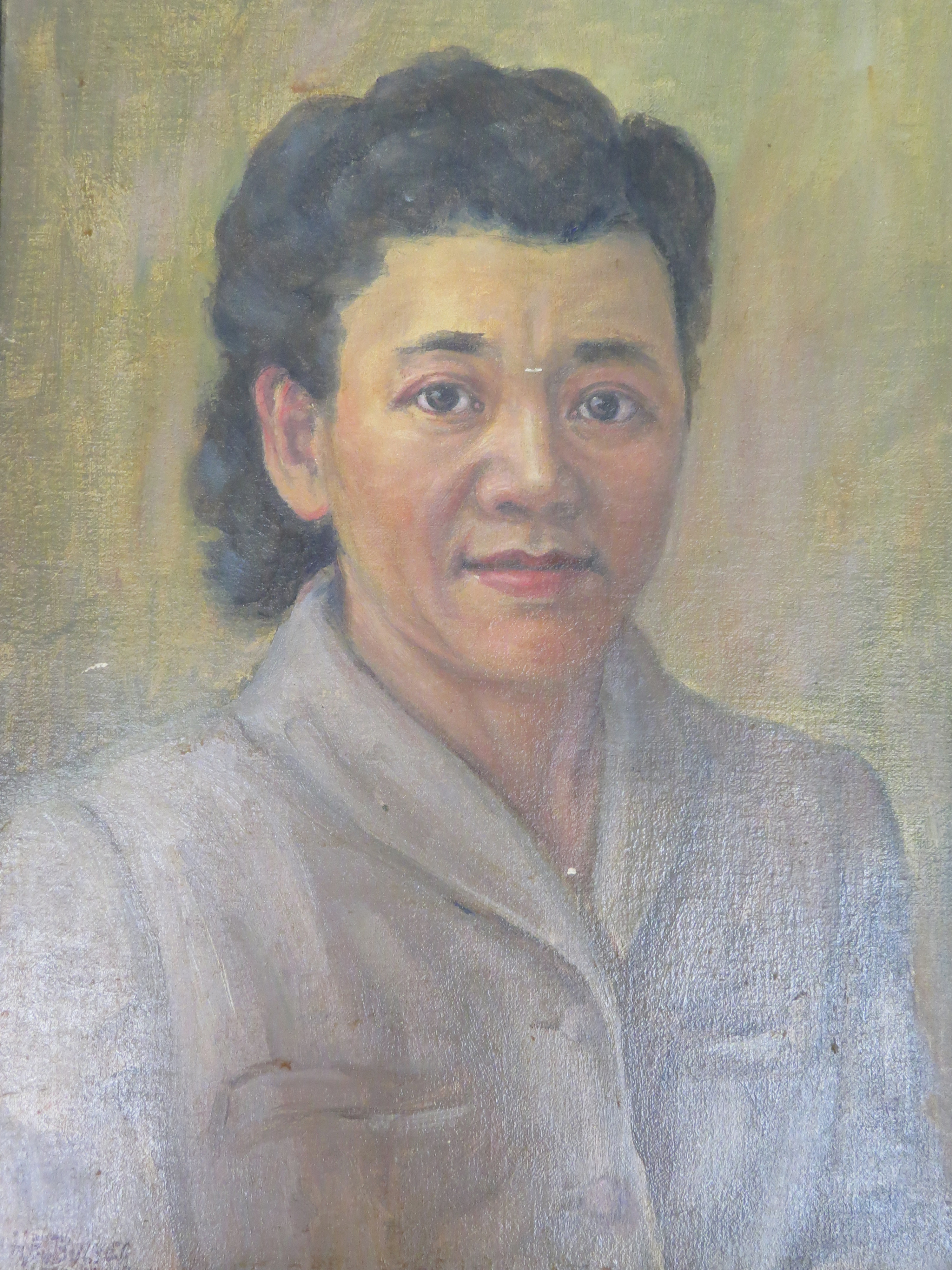
Harry E. Bulyea, the first director of the U of A's School of Dentistry, painted a portrait of Yachiyo Yoneyama.
Here is an excerpt from Taylor Lambert's book Roots: Extracted Tales from a century of Dentistry at the University of Alberta, pointing out Yoneyama in the 1943 dentistry graduating class picture:
...the thick, long black curls of Yachiyo Yoneyama, tied back yet seemingly uncontainable, distinguish her among the close-cropped haircuts of the white men who fill the rest of the frame. When Yoneyama began studying dentistry at the U of A, she was not the first woman―Fern Rideout had studied for a few years around 1920 before dropping out―but she would be the first woman to graduate. Born in Vancouver to Japanese parents who had emigrated to Canada shortly after marrying in 1914, Yoneyama was not only the sole woman in her graduating class, but also the only visible minority. She and [Dr. Harry E.] Bulyea [first director of the School] became friends, bonding over their mutual artistic passions: he painted a flattering portrait of her, and she drew a pencil sketch of him. Yoneyama's older sister, Misao, was also at the U of A studying medicine, when Japan attacked Pearl Harbour in December 1941. Less than three months later, the forced removal and internment of tens of thousands of Japanese-Canadians began. Their parents, their younger sister, Mitsue, and their younger brother, Yutaka, were forced to leave their farm.
Yutaka Yoneyama recalls that time:
"By May, the licence plates from our car were removed; cameras, explosives and firearms were confiscated; and we were placed under curfew. Mom and Dad, especially Dad, were devastated by the evacuation order since their income would be minimal. Misao and Yachiyo still had another year to complete before graduation. Somehow Dad and Mom managed….
[At a community meeting,] discussions centred around what had to be done in the event of an attack… the lights were turned down, and I was escorted out of the meeting. I was shocked and devastated. I suddenly realized that I was considered one of 'them' and not one of 'us.'"
The family, already separated from two daughters, was further split up: Mitsue was sent to a relocation camp near Hope, while Yutaka and his parents ended up working on a farm south of Edmonton, exploited by the landowners as prisoners of war. After two months of labour, they were paid a mere thirty dollars.
Yachiyo left no letters or journals recording her school experiences, but it is fair to say that this was a difficult time to be Japanese-Canadian, and one of the darkest moments in Canada's history. She graduated from the dentistry program in 1943, then moved to Lamont, Alberta, to serve as the dental health officer in a rural clinic before she took a Guggenheim Fellowship in New York, and eventually settled in Toronto where she practiced pediatric dentistry for decades. She died in 2013 at ninety-six, after a long career and rich family life. Her achievement and distinction would often be held up in later, more progressive decades as an important milestone in the history of the dental school. But the juxtaposing context of the concurrent injustice to her family has always been omitted, and thus not widely known.
Taylor Lambert is an Alberta journalist and author. His other books include Darwin's Moving, Rising: Stories of the 2013 Alberta Flood, and Leaving Moose Jaw.
Roots: Extracted Tales from a century of Dentistry at the University of Alberta is now available in trade paperback for purchase online, at the U of A Bookstore and Audrey's Books in Edmonton. All proceeds go to support Dentistry for Life fundraising campaign.